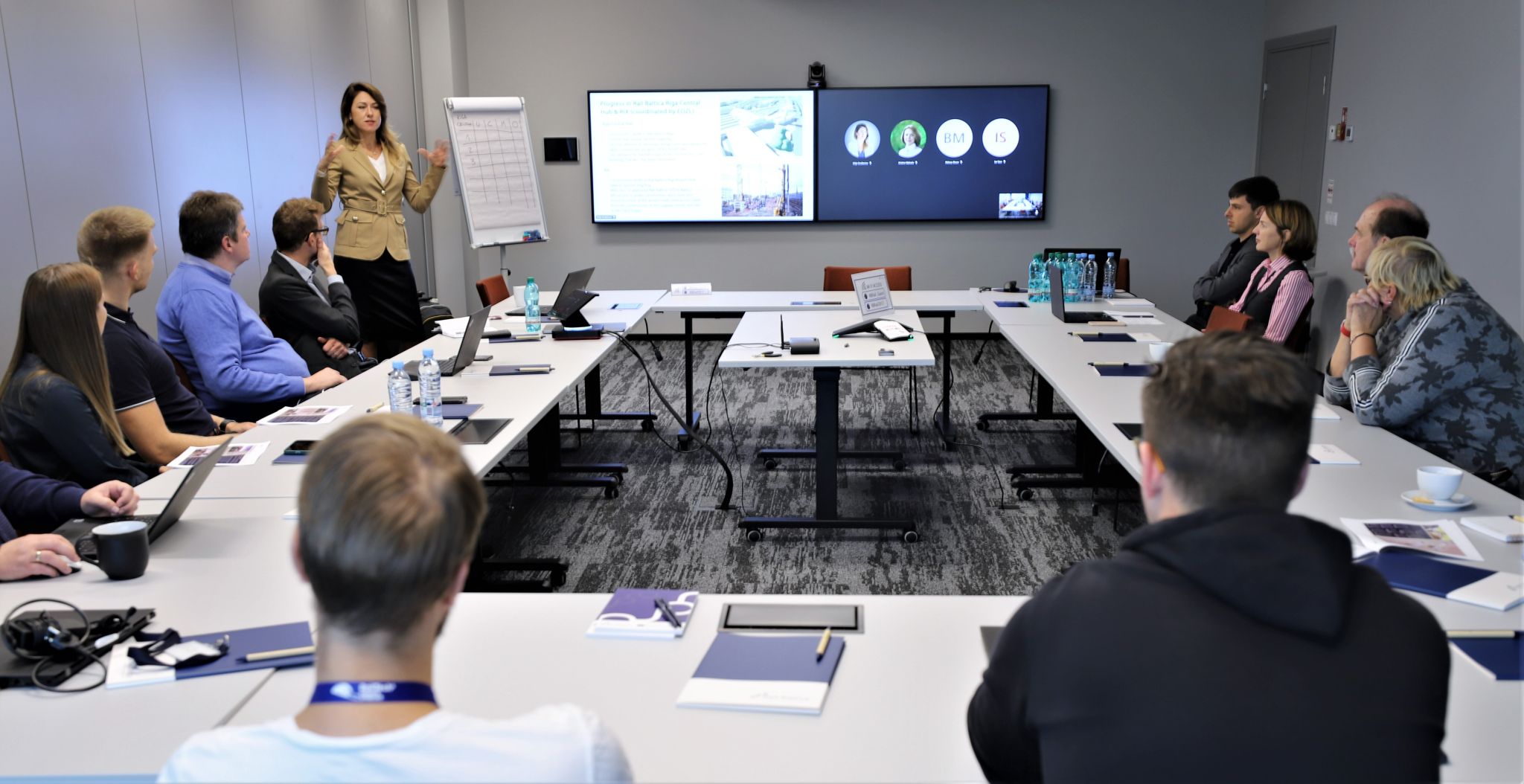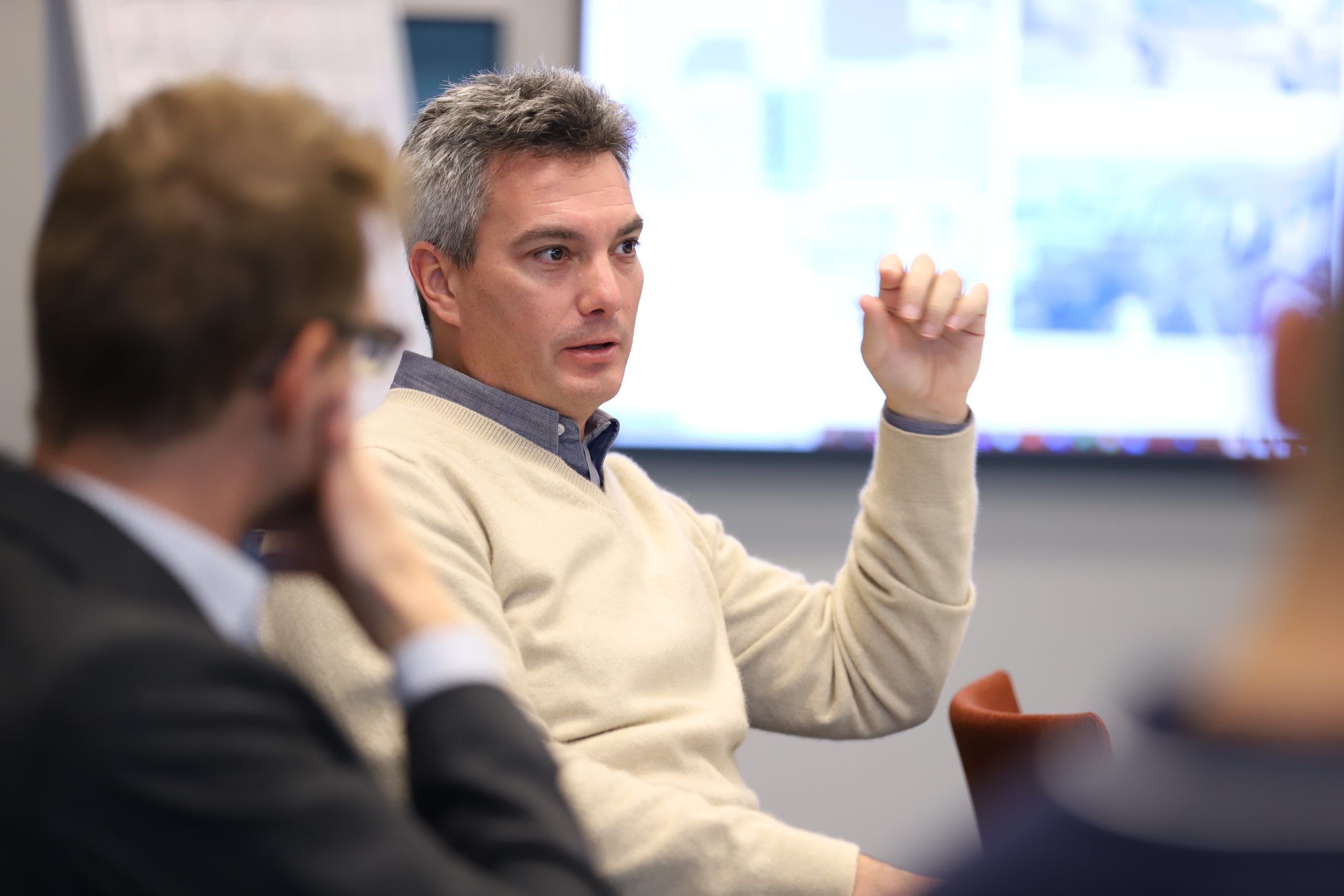Last week, from 26 until 28 September, three workshops dedicated to the role and future of the seven Rail Baltica international stations took place in Tallinn, Riga, and Vilnius.

Workshop about the maximization of GVA for the Rail Baltica international passenger stations (Vilnius, Lithuania)
During the workshops representatives from the consortium of the international firms led by Ramboll which implemented the study “Maximization of GVA for Rail Baltica International Passenger Stations” on the behalf of RB Rail AS, presented the outcomes of the study and engaged in discussions with a broad audience of national stakeholders.

Workshop about the maximization of GVA for the Rail Baltica international passenger stations (Tallinn, Estonia)
The discussion highlighted that there is an ambition to plan and build Rail Baltica international passenger stations as urban spaces for the people, enabling socio-economic benefits for the local communities, reaching beyond their natural enhanced mobility function and thus requiring an intense cooperation of different stakeholders and efficient planning from the early stages.

Kristīne Malnača, Strategic Planning and Economics Team Leader at Rail Baltica Rail AS
“This event started with the elaboration of what has been the scope of this study and was supposed to be the final step of an almost two-year long work. Instead, it opened new discussions on different aspects related to the development of Rail Baltica international passenger stations and could eventually become an intermediate step of a much longer journey,” said Kristīne Malnača, Strategic Planning and Economics Team Leader at Rail Baltica Rail AS.

Workshop about the maximization of GVA for the Rail Baltica international passenger stations (Riga, Latvia)
The development of sustainable mobility infrastructure and services from, to and around the stations, an efficient mixed land use maximizing the livability of the district surrounding the stations, the strategic usage of commercial areas to attract station users and connect areas with different functionalities, were just some of the key topics discussed.
The plans, opportunities, and challenges to the sustainable and successful mid and long-time development of the seven future Rail Baltica international stations were also discussed in detail, giving an opportunity to the local stakeholders to comment and elaborate on the results from the study.

Ian Sacs, Project Leader of the study and Smart Mobility Manager at Ramboll
“The complexity of the successful execution of some of the recommendations presented in the study we implemented on the behalf or Rail Baltica Rail AS will require continuous cooperation among a broad range of stakeholders, including the future station’s infrastructure managers, municipality agencies, service operators, real estate development agencies, to name a few. For this to happen, however, there is the need for someone to initiate the process, a champion for the future of the Rail Baltica international passenger stations and the local communities that will profit from them,” said Ian Sacs, Project Leader of the study and Smart Mobility Manager at Ramboll.

